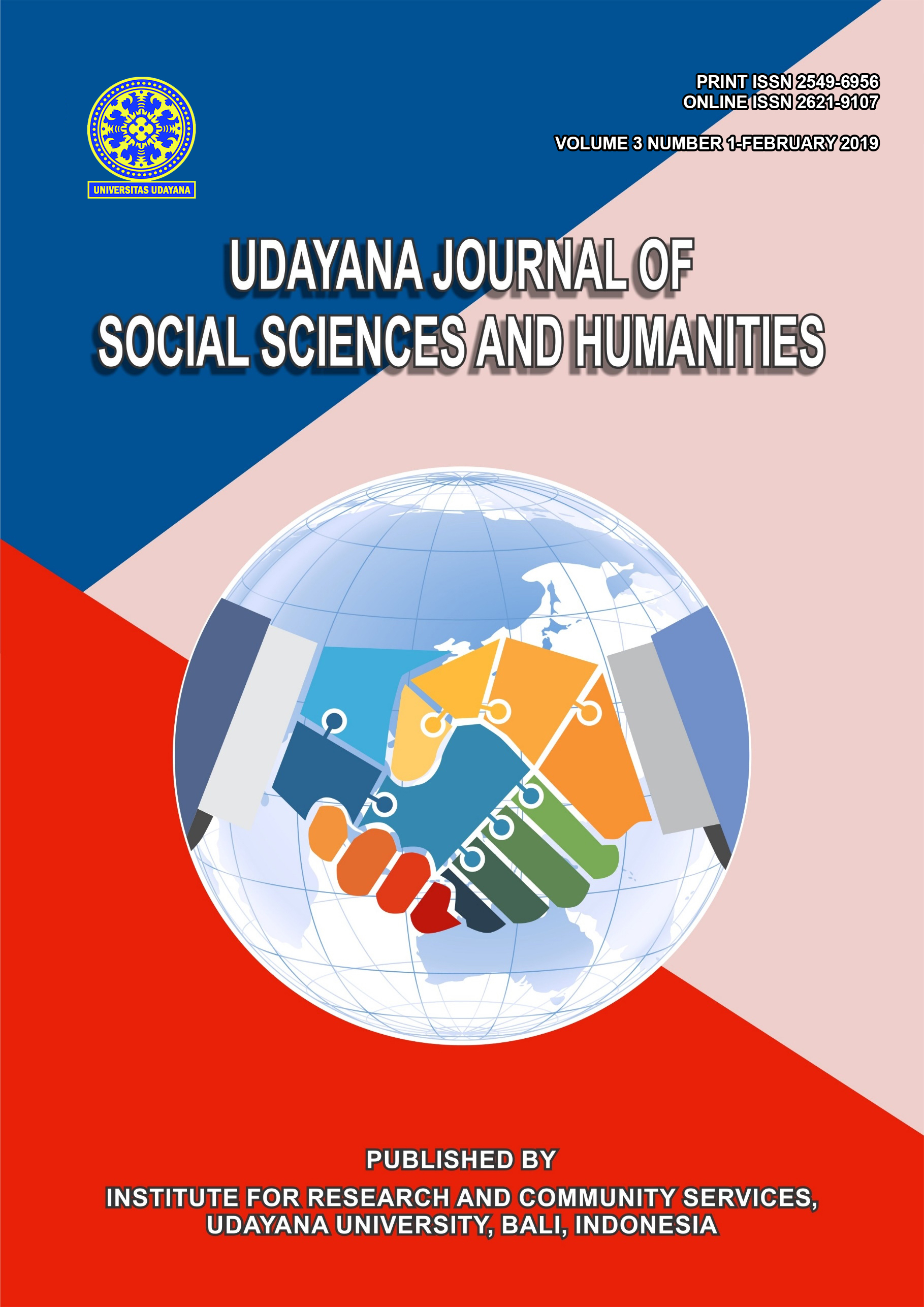Global Civil Society, Animal Welfare, and Cultural Value: Analysis of Dogs are not Food Movement in Bali
Abstract
Bali got international attention after news and video released by Animals Australia that showedthe trade of dog meat in Bali and how these dogs were obtained by torture to be used as food. Animals Australia’s investigation made the global civil society movement especially engaged in animal welfare increasingly massive and intense. Not only at the international level, but the participation of civil society in Bali regarding this issue is also increasingly intense. So that there is a movement from the public emerged to realize that dogs are not to be consumed through the Dogs are Not Food tagline. The social movements of global civil society are carried out institutionally in the form of NGOs (nongovernmental organizations) and non-institutionalized in the form of communities and individuals. The issue of animal welfare which is seen as a new issue is used as a basis for movement. This at once questioned whether the consumption of dog meat was in accordance with the cultural values adopted by the Balinese people. So that through this study the authors examined who the actors involved in the Dogs Are Not Food movement in Bali from 2017-2018 and analyzed the strategies implemented. The method used in conducting this research is a qualitative descriptive research method with data collection techniques through in-depth interviews and oral studies. The author used the new social movement theory, the concept of social movement strategy and the concept of cultural value. From the research obtained, the consumption of dog meat is also not in accordance with the customs and culture of Balinese people. The Dogs Are Not Food Movement in Bali involved global civil society who use each different framing and not all use a cultural approach in their movement strategy.






